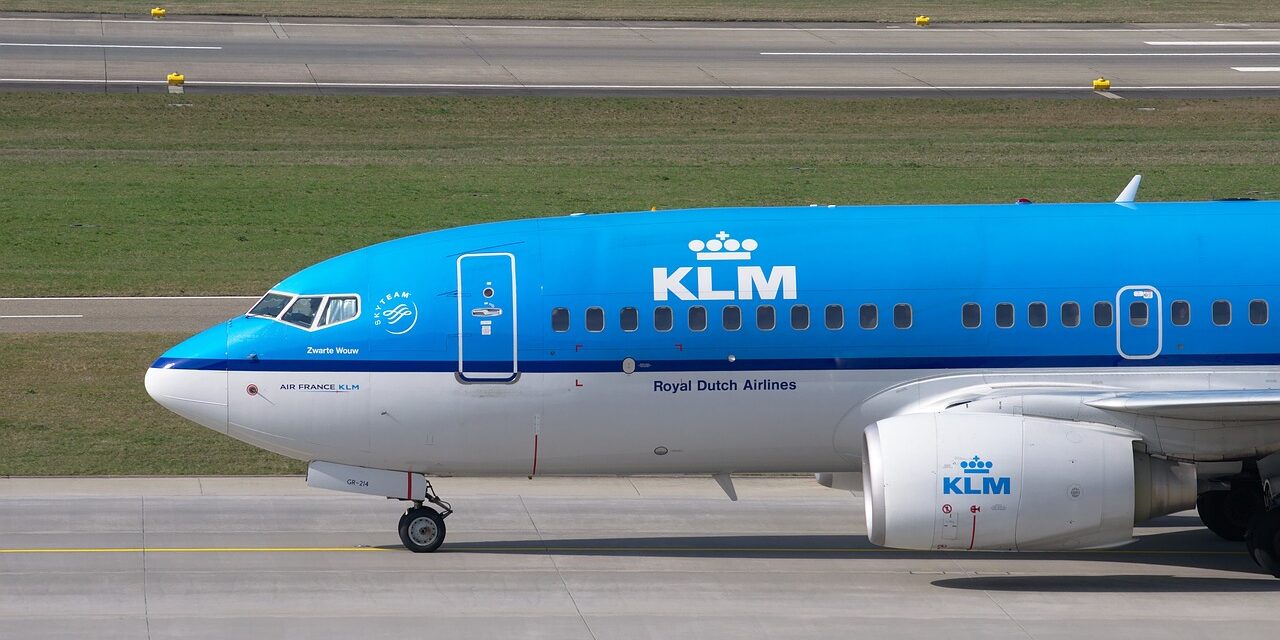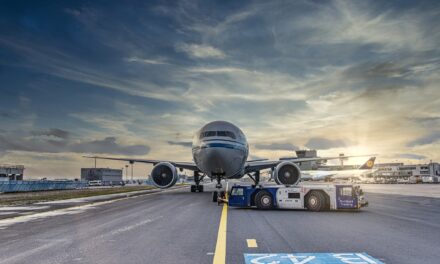KLM Royal Dutch Airlines celebrated on Monday the arrival of its first Airbus A321neo aircraft at Amsterdam Airport Schiphol.
This marked a milestone in the airline’s ongoing fleet renewal program.
“I’ve been looking forward to this with great anticipation. The arrival of the first A321neo marks the start of replacing our Boeing 737 fleet,” said KLM President & CEO Marjan Rintel.
The introduction of the A321neo is a key component of KLM’s strategy to reduce carbon emissions and noise pollution, the Dutch airline said in a press release on Monday, while also enhancing passenger comfort.
A step towards greener aviation
The Airbus A321neo, which stands for “new engine option,” is equipped with engines that reduce carbon emissions compared to previous models.
“The A321neo produces less noise and CO2 and therefore contributes significantly to a cleaner, quieter future. It also offers more comfort. I am looking forward to see how our passengers will experience the new aircraft,” Rintel said.
According to KLM, the A321neo is approximately 21% more fuel efficient per passenger tonne-kilometer than the Boeing 737 aircraft it replaces. The reduction in fuel consumption contributes to lower CO2 emissions, aligning with KLM’s commitment to more sustainable flight operations.
“Per passenger tonne-kilometre” is a metric used in the aviation industry to measure fuel efficiency and environmental impact. It combines passenger load and distance traveled into a single measurement to assess the efficiency of an aircraft.
In addition to its environmental benefits, the A321neo also has a substantially reduced noise footprint, which is expected to halve the noise disturbance for residents near airports.
Efficiency and savings
This comes as the airline grapples with high costs which hurt their financial performance in the first half of 2024.
“The KLM Group posted an operating loss of EUR31 million for the first half of 2024. While revenues were higher than in the same period last year, high costs caused results to lag. Without measures, this will not improve. KLM will therefore critically assess its investments, cost savings and opportunities to generate greater revenues,” KLM said in late July.
However, the fuel efficiency savings effected by the introduction of the new engines are unlikely to be part of KLM’s cost-saving measures as the planes would have been ordered before the release of H1 poor earnings performance.
“After the summer, KLM will present new measures,” KLM said, in reference to new cost-saving measures.
Enhanced passenger and crew experience
KLM has also focused on improving the passenger experience with the introduction of the A321neo. The new aircraft features wider seats, larger tables, and more spacious luggage bins. Each seat is equipped with a USB-C port and a holder for mobile devices or tablets, catering to the modern traveler’s need for connectivity and convenience.
The A321neo is also designed with the crew in mind, offering a wider aisle and easy-to-open luggage bins to facilitate smoother operations during flights. The cabin interior includes mood lighting that adjusts according to different phases of the journey, creating a more pleasant ambiance for passengers.
New routes and more aircraft to come
Starting in mid-September, the Airbus A321neo will be deployed on several European routes, including flights to Copenhagen, Berlin, and Stockholm, followed by services to Paris, Prague, and Vienna. KLM plans to expand its fleet with three additional A321neo aircraft by the end of the year.
Fleet renewal strategy
The addition of the A321neo is part of a broader EUR7 billion fleet renewal program that KLM has embarked upon to modernize and enhance its operations. This investment will see the replacement of older Boeing 737s on European routes with the more efficient Airbus A320neo and A321neo models.
KLM’s regional subsidiary, KLM Cityhopper, will also update its fleet with new E2 aircraft, supplementing the existing Embraer 175 and 190 models. For long-haul routes, KLM plans to introduce five new Boeing 787-10 aircraft, followed by the Airbus A350, which will eventually replace the older Boeing 777s and A330s. Additionally, KLM’s cargo division will be refreshed with four A350 freighters, replacing the aging 747 freighters.







